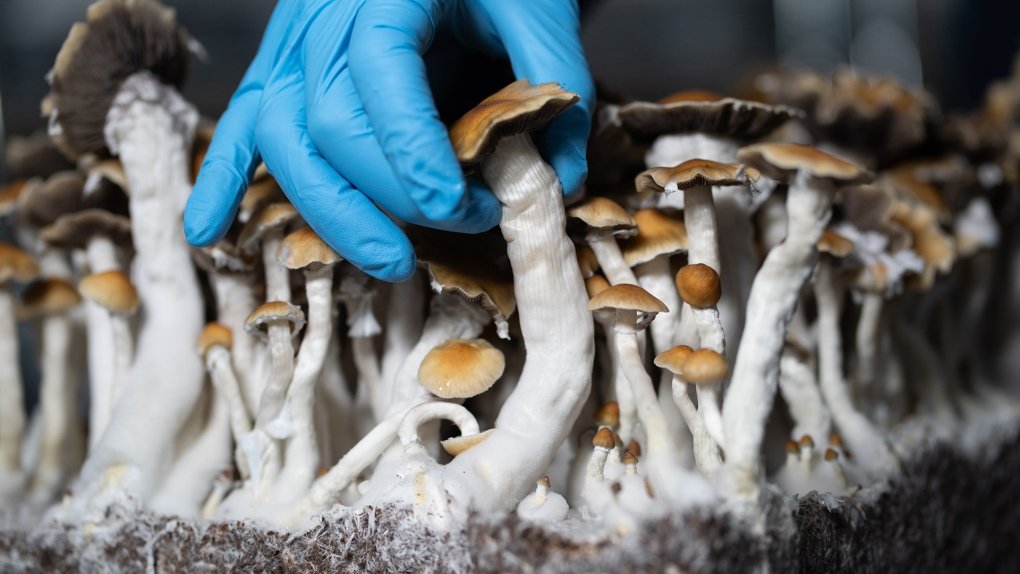Humans have long used metabolic byproducts of fungi for therapeutic purposes, such as penicillin. Why limit our use of fungi solely to food or their byproducts for combating bacterial infections when we have the opportunity to harness their active compounds for addressing some of the most prevalent mental health conditions?
Research indicates that, when administered under controlled settings alongside supportive therapy, psilocybin could prove beneficial in the treatment of various psychiatric disorders, including depression, anxiety, addiction, and even PTSD.
Perhaps that’s the reason why psilocybin mushrooms have gained so much popularity recently, especially among psychiatric and therapeutic communities. While this news is inspiring, we need to better understand psilocybin and how it may benefit us.
What is Psilocybin-Assisted Psychotherapy?
To begin, let’s discuss the nature of psilocybin. This compound is derived from various species of Psilocybin mushrooms, also known as “magic mushrooms” or “shrooms“.
In specific doses, this natural substance induces hallucinations, characterized by perceptions of seeing, hearing, smelling, or feeling things that appear intensely real but are not. It’s possible to hear music, and voices, or witness lights that do not exist in the current reality. Some individuals also report heightened insightfulness and what is commonly referred to as a “mystical experience.” These occurrences are colloquially known as having a “trip.”
Due to the expanding research into the potential of psychedelic medicine, there is growing excitement about the possible benefits of utilizing psilocybin within the realm of mental health therapy. Although the definition is not yet fully established, this approach to treatment generally involves the combination of psilocybin with traditional practices commonly used in psychotherapy.

How Does Psilocybin-Assisted Psychotherapy Work
According to currently available data from various research and clinical trials, there are 3 ways in which psilocybin may assist people in treating mental challenges.
Mystical Experiences
Having an intensely meaningful experience while under the influence of psychedelics can lead to a shift in a person’s mindset or belief system. These encounters can be instrumental in gaining a deeper understanding of one’s emotions and offering profound insights into the workings of the mind.
Increase In Suggestibility
According to studies, while on psychedelics, people may exhibit increased suggestibility. This indicates that the patient might be more open to positive suggestions from therapists or more receptive to the beneficial effects of their psychedelic experience.
Alterations in Neurotransmitters
Simply put, neurotransmitters serve as the messengers of the brain. Many conventional mental health medications directly influence neurotransmitters to modulate mood, addressing the disorder. Research suggests that certain psychedelic substances, such as psilocybin, may also have an impact on neurotransmitters, thereby influencing behavioral patterns in the brain and enhancing overall mood.
Why Psychiatrists Are Eagerly Exploring Psilocybin as a Treatment
Studies revolving around psychedelics are relatively new. The war on drugs has placed a great halt on the research of these intriguing compounds with high medicinal value. Now, when that’s all over, exploration of psilocybin’s potential can once again get the spotlight it deserves.

Although there is not much research done, the results we have so far are promising. Perhaps that’s why many psychiatrists are considering psilocybin a revolutionary treatment for mental health. Here are conditions that psilocybin may effectively treat:
Psilocybin May Treat Anxiety and Depression
One of the earliest recognitions of psilocybin’s medicinal potency was due to its ability to treat most persistent mental health disorders, even when all other medications failed. By alleviating mental health issues like anxiety and treatment-resistant depression, psilocybin’s medicinal application is gradually expanding within clinics across America.
Studies conducted in 2016 demonstrated that psilocybin rapidly and significantly reduces anxiety, depression, and feelings of hopelessness in cancer-diagnosed patients. Another study in 2020 indicated that individuals diagnosed with treatment-resistant major depressive disorders also experienced positive outcomes from psilocybin use.
The capacity of psilocybin to alter perception and consciousness is one of the factors contributing to its potential in treating mental illnesses. Psilocybin can be viewed as a catalyst for the therapeutic process, by heightening suggestibility in patients. When combined with professional psychotherapy, it’s possible to achieve great results, as it is a highly effective combination.

Post-traumatic Stress Disorder (PTSD)
Post-traumatic stress disorder (PTSD) is a condition that may manifest after an individual has undergone the trauma of a deeply distressing event. It is characterized by intrusive thoughts, nightmares, flashbacks, heightened arousal, and a tendency to avoid triggers associated with the trauma.
A recent study has unveiled the potential of psilocybin mushrooms in alleviating PTSD. The research involved 20 participants who had received a PTSD diagnosis following a significant accident or trauma. They were administered either psilocybin or a placebo twice daily over a span of two weeks.
The findings revealed that those who received psilocybin experienced substantial reductions in symptoms compared to those who received the placebo. Alongside the alleviation of PTSD symptoms, there was also notable evidence of improvement in depression and anxiety symptoms, leading to an enhanced quality of life for individuals grappling with these conditions.
Addiction
Psilocybin influences brain receptors associated with addiction and provides relief from stress and anxiety, which are usually also relieved by consuming the substance that you’re addicted to. This positions it as a valuable tool for those seeking to overcome smoking or alcohol dependency. There is a high likelihood that psilocybin may treat other forms of addiction, although there are no studies to back up these claims.
While higher doses of psilocybin can lead to intense alternations in consciousness, some individuals find this discomfort beneficial in their journey towards quitting smoking or alcohol consumption, often without experiencing adverse side effects. A small-scale study demonstrated the remarkable effectiveness of psilocybin therapy in maintaining 12-month smoking abstinence.
Is Psilocybin the Breakthrough Medicine of 21st Century?
Multiple different states have already taken a progressive step by legalizing therapeutic psilocybin use. Nevertheless, there remain fundamental questions about psilocybin that still lack definitive answers. Clinicians are in the process of unraveling how psilocybin operates, determining who it is most effective for, and establishing the optimal frequency and duration of its use. Addressing these queries necessitates conducting more clinical trials involving a larger pool of participants.
Securing funding for such studies proves to be a challenge, largely due to the lingering stigma surrounding psilocybin, which has dissuaded governmental funding bodies from supporting projects involving the compound. With an increasing number of phase 2 and 3 clinical trials underway, the potential for a groundbreaking shift in psychotherapeutic approaches looms on the horizon. If the speculations of some psychiatrists are true, psilocybin may be a breakthrough medicine of the 21st century.





